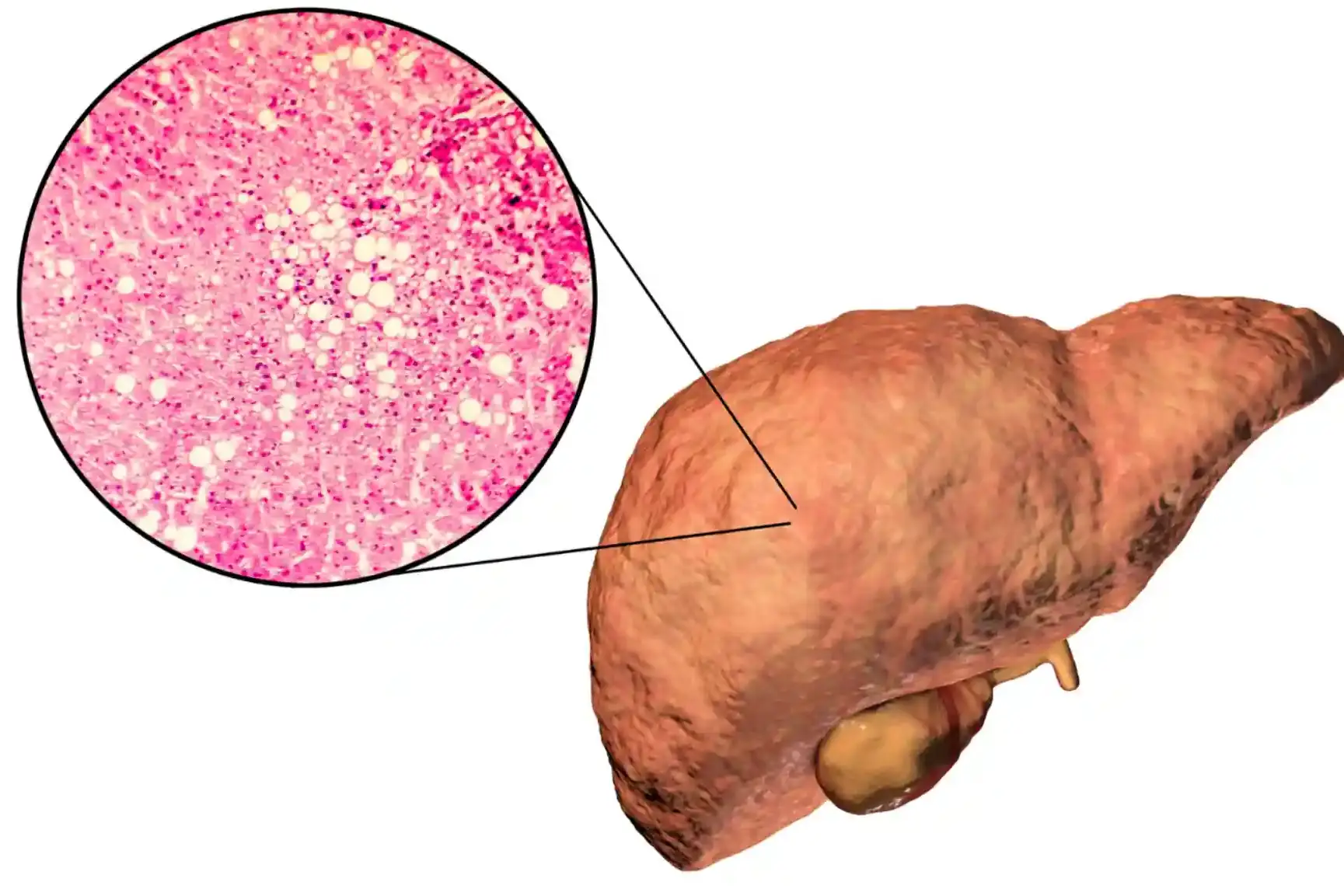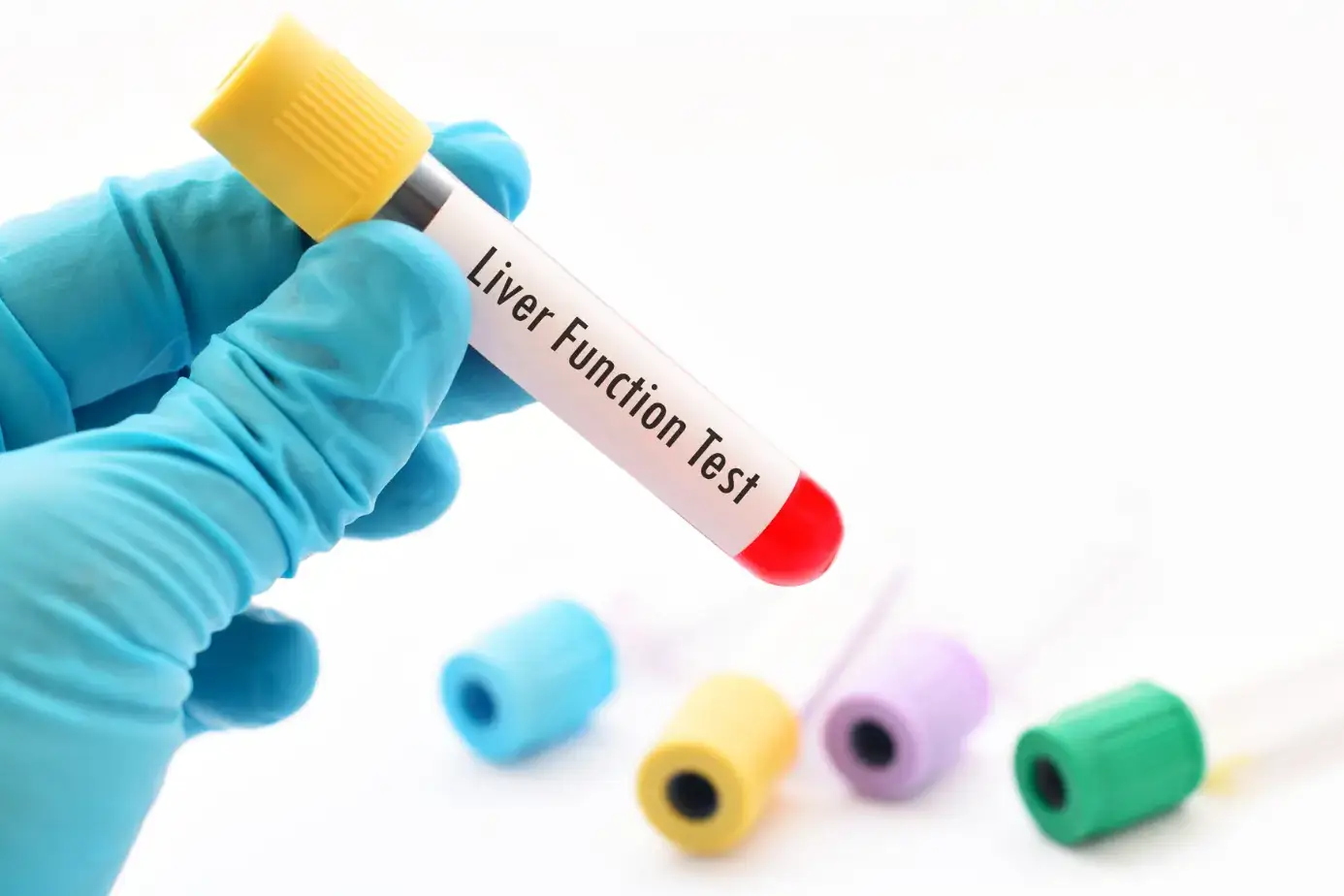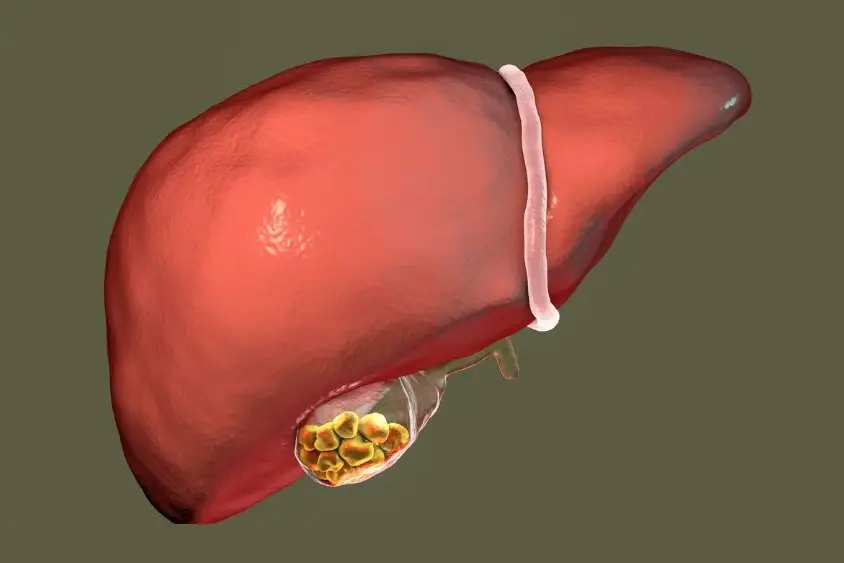Keeping your liver healthy is key to your overall health. A liver profile test gives important clues about your liver’s condition. It checks the levels of enzymes, proteins, and substances in your blood.
Table of Contents
ToggleThese levels show how well your liver is working. Knowing what your liver test results mean is crucial. It helps you and your doctor spot any liver issues early.
By understanding these results, you can take steps to keep your liver in top shape. This guide will explain the liver profile test and its parts. It will look at why each measurement matters and how to understand your results.
With this info, you can work closely with your healthcare team to protect your liver health.
Introduction to Liver Profile Tests
Knowing your liver’s health is key, as it does over 500 important jobs in your body. A liver profile test, or hepatic panel, checks your liver’s work by looking at blood levels. It finds liver damage or disease early, helping your doctor fix it fast.
What are Liver Profile Tests?
Liver profile tests check your liver’s health by looking at blood levels. They see how well your liver is working. This helps doctors find liver problems and fix them right away.
Importance of Understanding Liver Health
Your liver does many important jobs, like breaking down food and removing toxins. Keeping your liver healthy is key for your overall health. By knowing your liver test results, you and your doctor can make your liver better and stop liver diseases.
Components of a Liver Profile Test
A liver profile test looks at enzymes, proteins, and bilirubin levels in your blood. It helps check your liver’s health. Knowing what this test measures can help you understand your results better.
Enzymes Measured
The test checks for important enzymes like:
- Aspartate aminotransferase (AST): Found in the liver, muscles, and other organs.
- Alanine aminotransferase (ALT): Mainly in the liver, shows liver damage.
- Alkaline phosphatase (ALP): In the liver, bones, and other tissues.
- Gamma-glutamyl transferase (GGT): In the liver and other organs.
Proteins Evaluated
The test also looks at liver proteins, such as:
- Albumin: The most common blood protein, made by the liver, helps with fluid balance.
- Total protein: The total amount of proteins in the blood, including albumin and globulins.
Bilirubin Levels
Bilirubin is a yellow pigment from breaking down red blood cells. It’s a key part of the liver profile test. High levels can mean liver or bile duct issues.
This test checks enzymes, proteins, and bilirubin levels. It gives a full view of your liver’s function. Doctors use this to find problems and plan treatments.

Liver Profile Blood Test
The liver profile blood test, also known as a hepatic panel, is a key tool for checking your liver’s health. It looks at many important signs to see how well your liver works. This helps doctors understand your liver’s performance.
Your liver does many important jobs. It filters toxins, breaks down nutrients, and helps with blood clotting. A liver profile test can spot liver problems early. This lets doctors keep an eye on your health and act fast if needed.
Doctors might order a liver profile test for a few reasons:
- To find out why you might feel tired, nauseous, or have yellow skin
- To see how a liver condition is changing
- To check if certain medicines could harm your liver
- To make sure your liver is working well during routine check-ups
Knowing why you might need a liver profile test helps you work with your doctor. It’s a way to keep your liver healthy and catch any problems early. By learning about this test, you can help protect your health.
Interpreting Liver Profile Test Results
It’s important to understand your liver test results. This test checks how well your liver is working. Knowing what’s normal or not can help you stay healthy.
Normal Range Values
Each part of the liver test has its own normal values. Labs set these based on lots of data. These values help doctors see how your liver is doing.
For example, here are some normal ranges for liver enzymes:
- Alanine aminotransferase (ALT): 29-33 units/L for men, 19-25 units/L for women
- Aspartate aminotransferase (AST): 10-40 units/L for men, 9-32 units/L for women
- Alkaline phosphatase (ALP): 45-115 units/L for men, 30-100 units/L for women
- Gamma-glutamyl transpeptidase (GGT): 8-61 units/L for men, 5-36 units/L for women
Patterns of Abnormal Results
If your test results are not normal, it might mean you have a liver problem. Your doctor can look at the results to find the cause. Then, they can plan the best treatment for you.
For instance, high ALT and AST levels could mean hepatitis or fatty liver. Changes in protein or bilirubin levels might show liver disease. It’s key to talk to your doctor about your results to keep your liver healthy.
Liver Diseases and Conditions
Your liver is very important for your health. But, it can get sick with different diseases and conditions. These include hepatitis, cirrhosis, fatty liver disease, and liver cancer.
Hepatitis is when the liver gets inflamed, often from viruses. This can cause inflammation, scarring, and less liver function. Liver Cirrhosisis severe liver scarring, usually from too much alcohol or chronic liver issues. It makes the liver less effective.
Non-Alcoholic Fatty Liver Disease happens when fat builds up in the liver. It’s often due to being overweight, diabetes, or metabolic problems. If not treated, it can lead to serious liver damage. Liver Cancer, like hepatocellular carcinoma and cholangiocarcinoma, can also harm the liver.
Knowing about these liver diseases is important. It helps you understand your test results and keep your liver healthy. Regular check-ups and monitoring with your doctor are essential for early detection and management of liver issues.
Risk Factors and Causes of Elevated Liver Enzymes
If your liver profile test shows high liver enzymes, it’s crucial to understand the underlying causes. Two major risk factors are excessive alcohol consumption and certain medications.
Alcohol Consumption
Drinking too much alcohol is a leading cause of high liver enzymes. When you consume excessive amounts of alcohol, your liver works overtime. This can damage liver cells and cause inflammation.
This can lead to serious liver conditions like alcoholic hepatitis and cirrhosis if left untreated.
Medications and Liver Damage
Certain medications, including antibiotics, cholesterol-lowering drugs, painkillers, and even some herbal supplements, can also contribute to elevated liver enzymes. These substances can be taxing on the liver, causing inflammation and potential damage.
It’s crucial to always discuss any medications you’re taking with your doctor, especially if your liver test results are abnormal.
Knowing the potential causes of high liver enzymes, such as excessive alcohol intake and certain medications, can help you work closely with your healthcare provider. This way, you can address the underlying issue and protect your liver health.

Preparing for a Liver Profile Test
To get accurate results from your liver profile test, it’s crucial to properly prepare. Let’s go over the key steps you should take before your appointment.
Fasting Requirements
Remember to fast for 10-12 hours before your liver test. This means no food, drinks (except water), and some medications. Fasting gives your doctor a clear picture of your liver’s health without any outside influences.
Medication and Supplement Disclosure
Be sure to inform your doctor about all the medications, supplements, or herbal remedies you’re currently taking. Some of these can affect the test results. So, providing a full medical history helps your doctor interpret the findings accurately.
Avoiding Alcohol
Steer clear of alcohol for at least 72 hours before your liver profile test. Alcohol can temporarily raise your liver enzyme levels. This can skew the results and potentially mask any underlying liver issues.
By following these simple preparation steps, you can ensure your liver test provides your healthcare team with the most reliable information. Always consult with your doctor if you have any questions or concerns about getting ready for your liver profile test.
Follow-up Testing and Monitoring
If your liver profile test shows any problems, your doctor might suggest more tests and regular checks. These steps are key to fully understand your liver’s health.
Additional Diagnostic Tests
Your doctor could ask for imaging studies like an ultrasound, CT scan, or MRI. These help look closely at your liver’s shape and function. Sometimes, a liver biopsy is needed, where a small liver piece is taken for study.
Blood tests to check liver enzymes or proteins give more info about your liver’s work. These tests help find the cause of liver problems and plan the right treatment.
- Imaging studies to assess liver structure and appearance
- Liver biopsy to analyze a sample of liver tissue
- Blood tests to measure specific liver enzymes and proteins
Keeping an eye on your liver health with follow-up liver tests and additional liver tests is very important. This is especially true if you have a liver condition or are at risk of getting one. Being careful and active about your liver health helps keep it healthy. It also means you can get the right treatment quickly if problems come up.

Lifestyle Changes for Liver Health
Keeping your liver healthy is key to feeling good overall. Simple changes in your daily life can help your liver work better and prevent liver problems. First, cut down on alcohol. Drinking too much can really hurt your liver and cause health problems. Try to drink less or even better, don’t drink at all.
Next, eat a balanced diet with lots of fruits, veggies, whole grains, lean meats, and healthy fats. These foods are good for your liver and help prevent liver diseases. Choose foods high in antioxidants like berries, leafy greens, and broccoli to help your liver clean toxins. Eat more foods with omega-3 fatty acids, such as salmon, to lessen inflammation and support liver health. Avoid processed and fried foods as they can harm your liver.
Exercise is also great for your liver. Activities like walking, swimming, or lifting weights can keep you at a healthy weight, improve blood flow, and support overall liver health. Making these lifestyle changes can go a long way in keeping your liver in top shape.
Nonalcoholic fatty liver disease is a fast-growing epidemic among the obese, and cirrhosis can be caused by just four ounces a day of hard liquor for men (two for women). 20% of liver injury in the U.S. is caused by supplements, and many adults have not been immunized for Hepatitis A and B, which can be spread through contact with contaminated food or water. By making simple adjustments to your diet and exercise routine, you can improve liver health and reduce your risk of developing serious liver conditions.
Conclusion
Keeping your liver healthy is key for your overall well-being. A liver profile blood test helps check your liver’s function. It spots issues early. By knowing how to read the test, you can work with your doctor to keep your liver healthy.
Making lifestyle changes and monitoring your liver are important. Getting quick treatment for liver issues is also crucial. Your liver is vital for your body’s health. Taking care of it means better health for you now and in the future.
Liver health is very important. Liver disease causes nearly 2 million deaths worldwide each year. Cirrhosis is the 11th leading cause of death globally. By understanding liver tests and managing your liver health, you can lower your risk of serious liver problems. This leads to a healthier, more vibrant life.
FAQ
What is a liver profile blood test?
A liver profile blood test checks your liver’s health. It looks at enzymes, proteins, and other substances in your blood.
Why is understanding your liver health important?
Your liver does over 500 important jobs in your body. It helps with metabolism, digestion, and removing toxins. Keeping it healthy is crucial for your well-being.
What does a liver profile test measure?
The test looks at liver enzymes like ALT, AST, ALP, and GGT. These show if your liver is damaged or not working right. It also checks liver proteins and bilirubin levels.
When would a doctor order a liver profile test?
Doctors might order this test during check-ups. They might also do it if you have liver symptoms, are on liver-harming meds, or have a liver condition.
How do I interpret my liver profile test results?
Your results will be compared to normal values. If they’re not normal, it could mean a liver problem or another health issue. Looking at the results can help figure out what’s wrong.
What are some common liver diseases and conditions?
Common liver diseases include hepatitis, cirrhosis, fatty liver disease, and liver cancer. Knowing about these can help you and your doctor understand your test results.
What factors can cause high liver enzymes?
Drinking too much alcohol and taking certain meds are big risks for high liver enzymes. Some meds, like antibiotics and cholesterol-lowering drugs, can harm the liver too.
How should I prepare for a liver profile blood test?
To get accurate results, fast for 10-12 hours before the test. Avoid alcohol for at least 72 hours. Tell your doctor about any meds or supplements you’re taking.
What additional tests might be done if my liver profile is abnormal?
If your test is abnormal, your doctor might do imaging studies like an ultrasound or MRI. They might also do a liver biopsy. More blood tests could be done to get more info.
What lifestyle changes can help keep my liver healthy?
Drinking less alcohol, eating a balanced diet, and exercising regularly can help your liver stay healthy. A diet rich in fruits, vegetables, and healthy fats is good for your liver.
Source Links
About The Author

Medically reviewed by Dr. Nivedita Pandey, MD, DM (Gastroenterology)
Dr. Nivedita Pandey is a U.S.-trained gastroenterologist and hepatologist with extensive experience in diagnosing and treating liver diseases and gastrointestinal disorders. She specializes in liver enzyme abnormalities, fatty liver disease, hepatitis, cirrhosis, and digestive health.
All content is reviewed for medical accuracy and aligned with current clinical guidelines.





